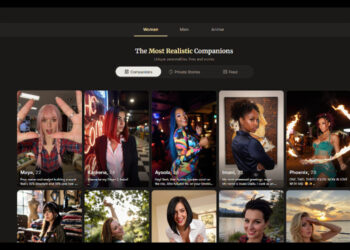NEW YORK, NY – As anticipated by anti-CDA insiders, Manhattan photographer Barbara Nitke (www.barbaranitke.com) and the National Coalition for Sexual Freedom (www.ncsfreedom.com) have decided to appeal their proactive anti-Communications Decency Act case to the U.S. Supreme Court. A notice of appeal was formally filed in order to challenge a recent decision by the District Court that admitted the plaintiffs were at real risk of prosecution under the CDA in spite of Nitke’s work clearly passing First Amendment muster, but declined to find the CDA standards improper.According to the plaintiffs, the District Court applied an inappropriate legal standard in its decision on the case. At issue is the court’s insistence that Nitke prove internet community standards – in spite of its agreement with NCSF counsel that such a standard could not be determined.
According to NCSF representative Susan Wright, her group finds the District Court decision unacceptable because “… the court agrees that websites that deal with alternative sexuality are at risk of prosecution.” Such sites include, but are not limited to those dealing with SM, as well as forms of non-monogamy including swinging and polyamory. Wright contends that not only websites but also chat groups and image galleries, even those providing educational materials about adult sexuality, are “at risk.”
The Federal District Court for the Southern District of NY agreed with Nitke that not only Nitke’s speech but also that of others have been compromised by the CDA, but concluded that the more than 1000 images and text from more than 150 artists and website owners was “insufficient evidence” upon which to make a decision about how far reaching the inhibition was, or about the demographics of the internet community’s standards.
Nitke, whose case challenges the CDA’s banishment of speech and images on the internet that could be found obscene by the most conservative community in the United States, remains adamant about the importance of her legal case.
“As an artist, I can only do my work in a free society, and that’s what this challenge is about,” she explained.
Given that her high quality imagery explores often “alternative” forms of sexual relationships, her work remains at risk, however firmly it passes the SLAPS test (possesses Serious Literary, Artistic, Political, or Scientific value).
“We’re fighting for the continued right of American artists to do their work and share it with others on the internet,” Nikte added.
Additionally, the CDA makes it illegal to have obscene material on a website that is not impossible for minors to access. Clearly this poses enormous challenges to those providing content, given the technical savvy of many young people and the ease with which multiple age groups use the internet, a point previously made by the Supreme Court in Reno v. ACLU.
In addition to working with Nitke in her case, NCSF has filed an Amicus Brief in support of Extreme Associates, and she has supported the Free Speech Coaltion’s injunction against the enforcement of recently updated 2257 record keeping provisions.












